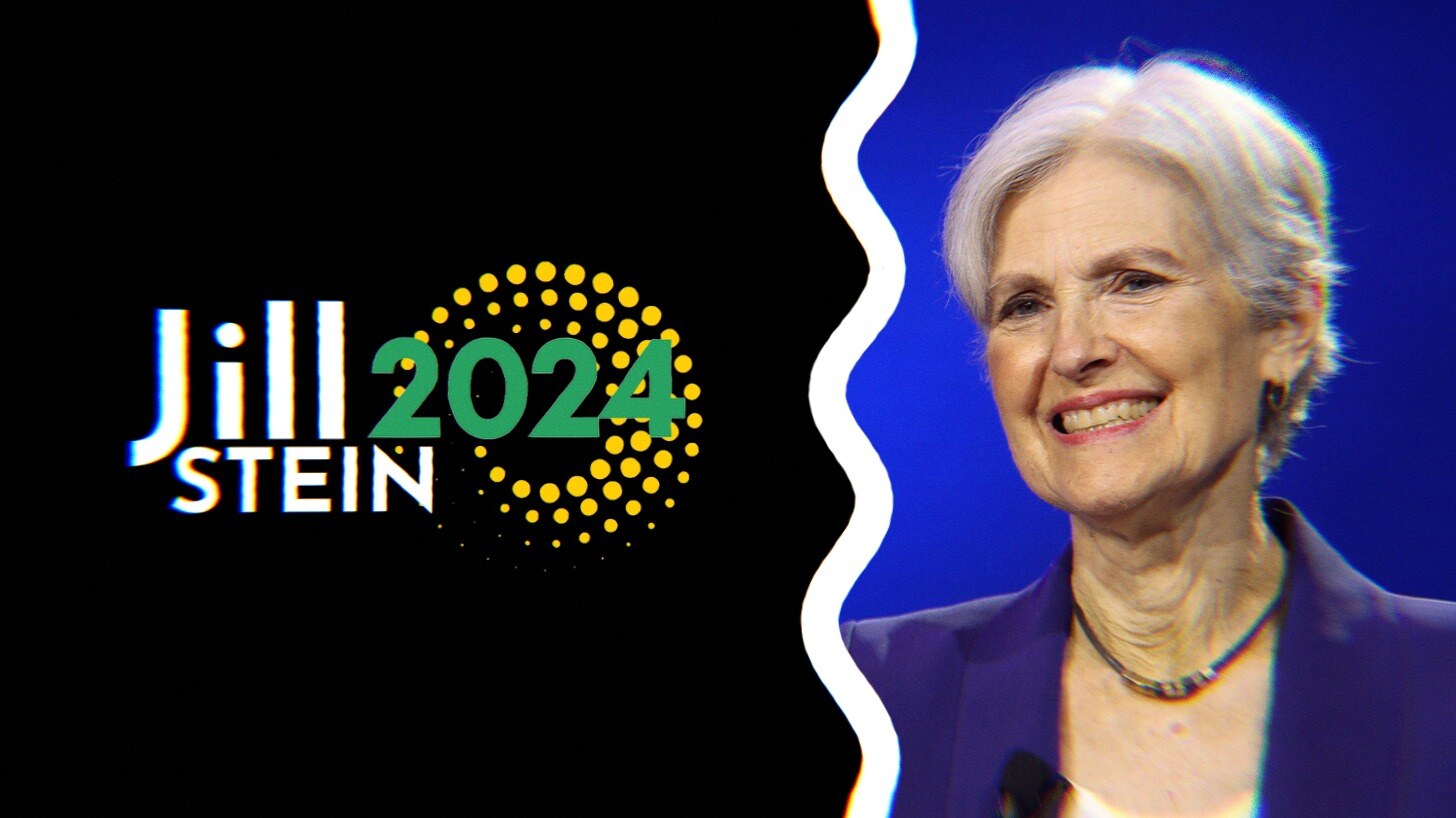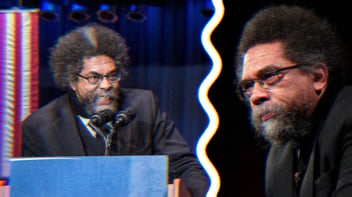Progressive Spotlight: Jill Stein.
Omar Fights For Others to Receive the ‘Golden Ticket’ To America.
 Image Description: A photo of Jill Stein smiling alongside her 2024 Presidential campaign logo.
Image Description: A photo of Jill Stein smiling alongside her 2024 Presidential campaign logo.
In 2022, the Pew Research Center released a poll in which a significant majority of people surveyed said they favored having more political parties as part of the U.S. electoral system—including 38 percent of Democrats.
Specifically, voters were provided with the statement—“I often wish there were more political parties to choose from in this country”—and asked to what extent they shared that sentiment, with responses ranging from “extremely well” to “not at all well.” According to the results, a combined 71 percent fell into three categories: extremely, very, or somewhat well.
In a nutshell, millions of Americans want more options beyond the establishment parties. “Neither party is very popular with the public,” Pew reported.
For the better part of 12 years, Jill Stein has fought to give people more options at the ballot box.
Stein, a physician and environmentalist before emerging as one of the most recognizable third-party candidates in recent history, ran for president on the Green Party ticket in 2012 and 2016, losing by significant margins both times.
That Stein has been unable to generate mass appeal on the electoral stage says as much about the system as it does her perceived shortcomings. (She was, after all, arrested outside the presidential debate in New York in 2012 while protesting her exclusion from the duopoly-controlled event.)
For third-party political organizations, appearing on ballots nationwide is notoriously difficult—and expensive. An onerous and all-consuming endeavor, ballot access is made harder by the fact that eligibility requirements are in the hands of each state.
In ostensibly liberal New York, for example, a change in its ballot access law under former Gov. Andrew Cuomo in 2020 led to the disqualification of once-eligible third parties, including the Green Party. As a result, New Yorkers won’t have an opportunity, as it stands, to vote for Stein under the Green Party ticket in the upcoming presidential election, effectively giving voters fewer options. And this is all occurring after months of pronouncements from Democrats and the media establishment that the 2024 election will double as a referendum on the state of American democracy.
And when we mention how “the system” delegitimizes third-party runs, we’re also speaking about the mainstream media. When Stein announced her campaign in November 2023, the Associated Press—the most widely consumed news wire in the world—largely focused on the threat candidates like herself pose to establishment choices. It was devoid of reporting about her broader political beliefs and past or current policy proposals. Most readers would likely gain nothing from the piece besides the fact that Stein—and by extension, other third-party hopefuls across the political spectrum—are a threat to the two-party system.
In a previous interview with News Beat, Stein spoke about the dissatisfaction voters have with the limited choices forced upon them. Recorded before the 2020 presidential election, which had historic turnout for a U.S. election, Stein referenced tens of millions of eligible voters who stay home every year when it’s time to vote, partly because they’re frustrated by the two dominant parties.
Of the disaffected, Stein said they’re “choosing not to vote for either of the two major corporate parties being shoved down our throats because of their disastrous record of throwing people under the bus.”
For those on the left, the veteran presidential campaigner cited the Wall Street bailout and the Democratic National Committee’s interference in the 2016 Democratic primary as examples of why so many voters feel disenchanted.
“When Bernie Sanders had incredible momentum behind him, the leadership of the Democratic Party, and the DNC, essentially sabotaged him, interfering in the election,” Stein said.
“And this is not anything new that you can take this back to Jesse Jackson or Dennis Kucinich, as a progressive who was locked out of the debates, even within the Democratic Party,” added Stein. “Jesse Jackson, who, you know, built a lot of momentum for a social democratic, racially diverse wing of the Democratic Party, and then basically got crushed inside the Democratic Party. Over and over again, either the Democrats crushed their resistance or they incorporate the resistance, and they sort of pressure it out of existence.”
As of this writing, the Green Party has ballot access in less than half the states in the country and is engaged in legal action in four others.
The ballot access struggle effectively means that candidates for third parties, such as Stein, are not only trying to appeal to voters on a personal level but have to prove their legitimacy as well.
Stein does that by voicing support for popular working-class issues. On the economy, Stein is in favor of an “economic Bill of Rights” that ensures a “living-wage job, government-funded education, including college, secure retirement, and much more. Stein also supports abolishing student debt and providing free childcare to families. And she’d take on the corporate class by banning formerly illegal stock buybacks, imposing higher taxes on the mega-rich, and breaking up monopolies.
Among her other proposals geared toward uplifting average Americans: instituting a $25 minimum wage, establishing universal rent control, and improving the lives of workers by mandating three weeks of paid leave and eight weeks of paid vacation.
“Wall Street parties have rigged the economy against working people,” Stein says on her campaign site.
The Green Party standard bearer is also going beyond platitudes about saving democracy by calling for ranked-choice voting, the abolition of Citizens United, and restoring voting rights to people convicted of felonies—a vestige of Jim Crow that’s been characterized as a “civil death sentence.”
And after nearly 23 years of the so-called war on terror, which has enveloped wide swaths of the Middle East and Africa, Stein’s “peace” platform calls for the end of “existing wars, military actions, proxy wars and secret wars” and remove the executive branch’s war-making authority.
“It’s not only that there’s profiteering off of death, but this is what’s driving the wars in the first place,” Stein said in a video posted on X. “That you have the war contractors who are lobbying, who are providing campaign contributions and are basically ginning up a war industry.”
Exactly the type of stuff the duopoly doesn’t want you to hear about.
Image Sources
- Gage Skidmore, CC BY-SA 3.0, via Wikimedia Commons. Changes were made.
- Vjmlhds, Public domain, via Wikimedia Commons. Changes were made.
Rashed Mian is the managing editor of the award-winning News Beat podcast and co-founder of the newly launched Free The Press (FTP) Substack newsletter. Throughout his career, he has reported on a wide range of issues, with a particular focus on civil liberties, systemic injustice and U.S. hegemony. You can find Rashed on X @rashedmian and on Bluesky @rashedmian.bsky.social.


